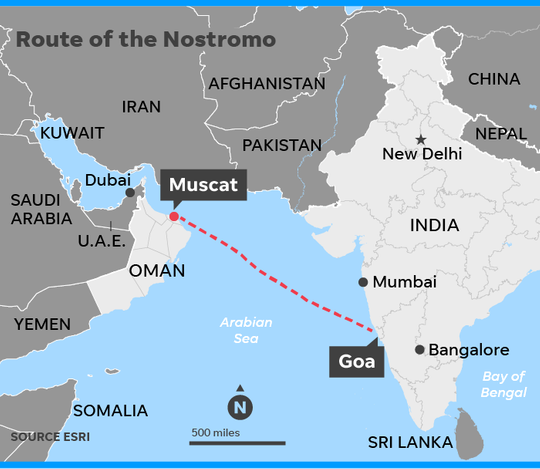Kim Hjelmgaard
March 28, 2019, USA Today
An American attorney who has built a career defending women against powerful men has joined a group of human rights activists and international lawyers in calling for legal scrutiny over what happened to the daughter of Dubai’s billionaire ruler.
Lisa Bloom has represented high-profile victims of sexual harassment and assault. Her work helped force out Bill O’Reilly at Fox News and Bloom’s celebrity clients include Mischa Barton (who brought a “revenge porn” lawsuit against a former boyfriend) and Blac Chyna, a model involved in a child-custody dispute with Rob Kardashian, of the Kardashians – often referred to as the first family of reality TV.
Now, Bloom, 57, who is based in Los Angeles, will take an active role in the case of Princess Latifa bint al-Maktoum, whose plight has been highlighted by USA TODAY.
The 33-year-old, according to witnesses, a YouTube video and a large collection of documents and other evidence reviewed by USA TODAY, was forcibly returned to the United Arab Emirates nine days after attempting a daring escape from Dubai. She was apprehended off the coast of India, in international waters, on a U.S.-registered boat.
Witnesses believe the princess, known as Sheikha Latifa, was intercepted by Indian security services and military at the request of authorities in Dubai. Her friends and representatives now believe she is being held against her will. She was last seen in photos published by Dubai’s foreign ministry on Christmas Eve last year.
Authorities there have not replied to several USA TODAY requests for comment. The UAE Embassy in Washington, D.C., also has not responded to a request for comment.
“The U.S. public should be made more aware of the situation and we should be boycotting Dubai while its ruler is, in plain sight, holding captive his adult daughter who has committed no crime apart from wanting to leave and live her own life,” Bloom said in a USA TODAY interview. “I am someone who reads the news religiously every day, especially issues pertaining to women’s rights. Most people I speak to are not aware of this case. Most people when they do find out about it would not want to go to Dubai.”
Aspects of what happened to the princess, known as Sheikha Latifa, remain shrouded in secrecy. A separate legal case that Bloom is not involved with is pending.
But Sheikha Latifa’s story has been corroborated by witnesses and friends as well as London-based lawyers and activists working on her behalf. The U.N. and humanitarian groups such as Amnesty International and Human Rights Watch have backed her account. USA TODAY has reviewed emails, images, encrypted social media messages, IDs and satellite data that substantiate what happened to her.
“She was beaten and abducted from a boat with a U.S. flag, that was U.S.-registered, with a U.S. citizen captain and she said she wanted asylum in the U.S. – all of this is a clear violation of her human rights within U.S. jurisdiction on that boat,” said Bloom, who noted that she believes those responsible for Sheikha Latifa’s apprehension should be prosecuted in a U.S. court because the boat was U.S. territory.
A nagging question is how Dubai’s authorities were able to locate the boat.
However, Bloom conceded that court jurisdiction for any legal case has not yet been established and she is currently trying determine what the legal options might be.
Bloom has also worked for women who were drugged and sexually assaulted by the actor Bill Cosby. She drew sharp criticism for advising the disgraced movie mogul Harvey Weinstein. He is no longer a client. The California lawyer was also connected to several women who made or considered making sexual assault allegations against then-candidate Donald Trump during the 2016 presidential race.

(Photo: Jae C. Hong, AP)
Bloom is not formally representing Sheikha Latifa as an attorney because she has not been able to speak with her to get her consent. She is working on the case pro bono.
“I have as much right as any citizen to raise my voice, to call for boycotts, to put pressure on leaders,” she said. “(Sheikha Latifa’s father, Sheikh Mohammed bin Rashid al-Maktoum) doesn’t live in the U.S. but he owns a couple of horse farms in the Lexington, Kentucky, area and I don’t think the good people of Lexington would appreciate someone like him doing business in their backyard,” she said.
“This is such a a blatant violation of Latifa’s human rights. I just can’t just sit silently by.”

Andrew Serdy, an expert on maritime law at the University of Southampton, in southern England, said there were only a only handful scenarios and exceptions where a U.S.-flagged boat sailing in international waters could be legally boarded by a “nearby-state” (such as a security service or coast guard) without explicit consent.
These include if that “nearby-state” had been pursuing the boat from its own territorial waters (in this case Dubai’s or India’s); if it suspects the boat is involved in piracy or the slave trade; if the ship is involved in unauthorized broadcasting; or if it is without nationality or is in fact of the same nationality as the “nearby-state.”
None of these scenarios is applicable in Sheikha Latifa’s case. She boarded the boat she was escaping on while it was already in international waters off the coast of Oman. Piracy involves at least two ships, and one has to be stealing from the other.
“The flag state has exclusive jurisdiction over the vessel on the high seas,” Serdy said, citing Article 92 of the United Nations Convention on the Law of the Sea.